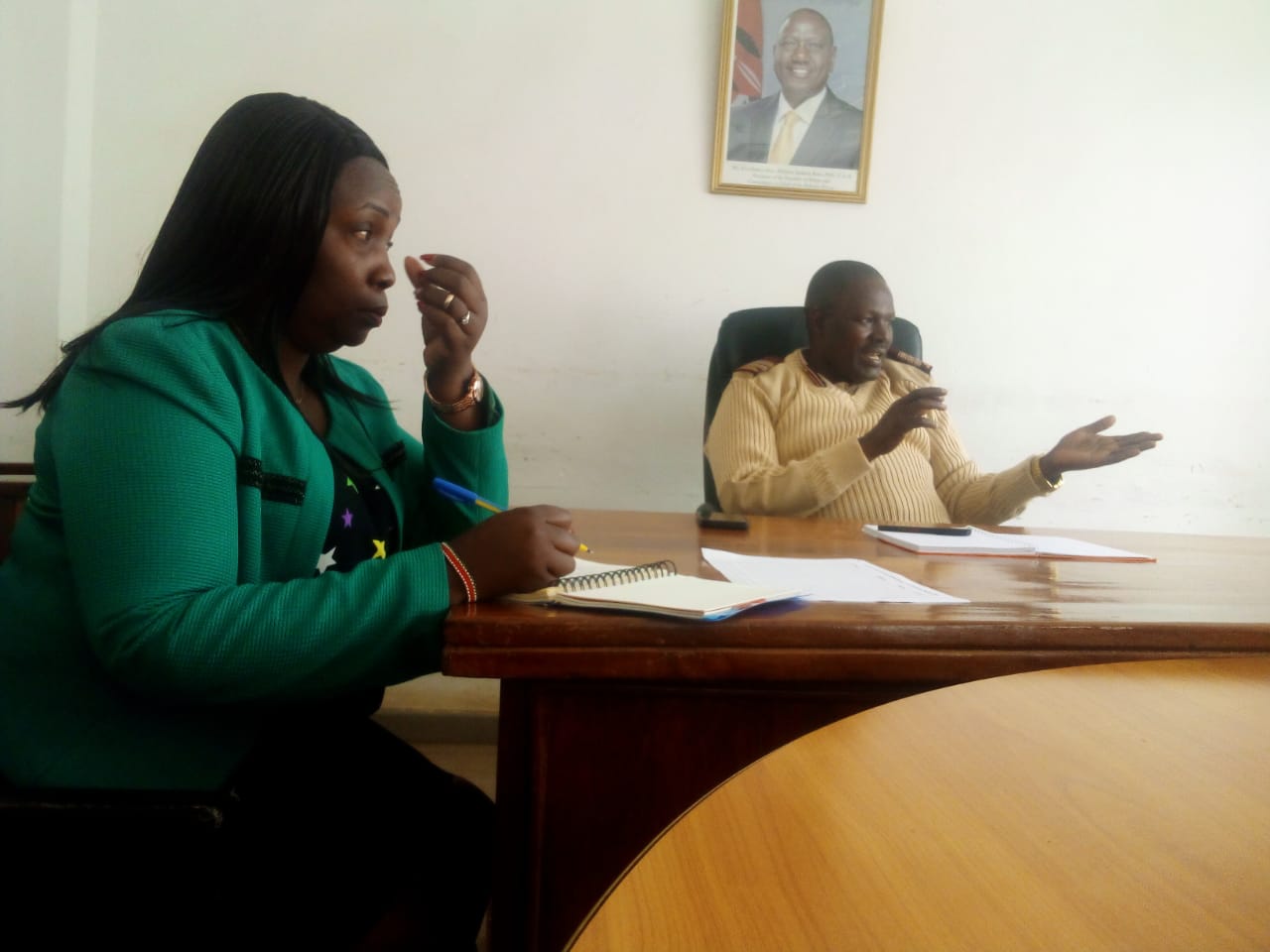Nakuru,
Wednesday, April 24, 2024,
KNA by Anne Mwale
The Teachers Service Commission will support continuous retooling (retraining) of teachers, to ensure compliance with the Competency-Based Curriculum (CBC).
TSC Rift Valley Regional Coordinator, Alex Cheruiyot, stated that the teachers needed to be equipped with skills to handle changing trends and class management, as the education system shifts fully to the Competency-Based Curriculum. Mr Cheruiyot indicated that the new curriculum requires an innovative human capacity and that revitalizing the teaching profession, will ensure quality, equity and relevance at all levels of education.
In the education context, retooling is a process that is meant to increase professional knowledge and skills to teachers, so that students’ learning is improved.
Making his presentation during a training session for Junior Secondary School (JSS) teachers at a Nakuru hotel, Mr Cheruiyot stated that through continuous training programmes TSC and its partners are committed to supporting teachers in ICT integration for them to effectively source for and develop teaching aids and learning materials for the CBC curriculum.
A total of 9,595 teachers are undergoing the training course on expectations of the ongoing school curriculum reforms that lay emphasis on making learners acquire competencies to fit in the 21st century work environment.
The programme organised by the Centre for Mathematics, Science and Technology Education in Africa (CEMASTEA), is being conducted during the April holidays and targets JSS teachers from 47 counties assigned to teach Pre-Technical Studies, Agriculture and Nutrition. Mr Cheruiyot said the training would improve human capital.
‘‘Amongst the retooling aspects involves the shift of the education system, to remote learning through digital apps. The technology will enhance teaching and learning with their students, as well as providing features to enhance teacher-learner engagement,’’ he said.
The Regional Director indicated that the country’s education system, is currently on a reform path, a move geared towards improving the human capital index and quality of life.
He added that Kenya has been making strides in providing quality education, which is not only a constitutional right, but also guided by Sustainable Development Goal 4 (SDG), calling for inclusive and equitable education that promotes lifelong learning opportunities for all.
“As this happens, the teacher aspect has to be well taken care of, whereby, they must be retooled to be in tandem with the changing education needs of learners and the world today,” indicated the Director.
The Presidential Working Party on Education Reforms (PWPER) Report, made critical recommendations on retooling teachers, especially now that the country is transitioning to a Competency Based Curriculum (CBC), with only five classes left under the 8-4-4 system.
To attract, develop and retain effective teachers, PWPER calls for the need to have a one-year mandatory retooling programme, for all graduates of pre-service training to be CBC compliant and a one-year mandatory internship programme, upon completion of pre-service training before being registered into the teaching profession.
According to TSC, a Multi-agency approach has been used to retool at least 229,000 primary school teachers and 55,125 others for Junior Secondary Schools so far, in a bid to ensure the successful implementation of CBC.
This means the total number of teachers retooled for CBC represents 82 per cent of the total number of teachers employed and the Commission continues to run the training programme to cover all of them.
Similarly, the Commission has already rolled-out remote learning as an innovative strategy for alternative modes of curriculum implementation and sensitised 163,938 teachers.
Mr Cheruiyot affirmed that it was important to put emphasis on the teachers’ professional knowledge, engagement in the teaching service and effective curriculum implementation.
He noted that this was critical because it will ensure the acquisition of competencies, skills, values, and attitudes for effective CBC implementation and assessment.
Cheruiyot stated that the dynamic nature of education requires teachers to continue learning beyond the pre-service training, as part of building capacity development and to cope with emerging trends.
“With the country embracing continuous retooling, there will be a greater impact on both teachers and learners and in the long run, the country’s national development will be boosted to even greater heights.
But as this happens, there is also a need to fully embrace technological advancements, to ensure effective curriculum delivery, a concept that CBC highly recognises,” Mr Cheruiyot pointed out.
He indicated that Kenya is looking forward to responding to the demands of the 21st Century, which requires an innovative human capacity and that revitalizing the teaching profession will ensure quality, equity and relevance at all levels of education.
Mr Cheruiyot said teachers should be well equipped with changing trends of teaching and class management, while at the same time inculcating a tech-friendly model, because it is impossible to separate technology and education.
He reiterated TSC’s commitment to supporting CEMASTEA’s initiatives, aimed at establishing a strong foundation in Science Technology, Engineering and Mathematics (STEM) education and addressing inequalities in the education system.
“There’s also a need for teachers to create communities of practice to deliver quality STEM education,” he said.
He said the training also involves the integration of digital literacy, which is essential in the contemporary learning environment.
“Mentorship and guidance in STEM fields is one of the fastest-growing areas to get young people interested in educational opportunities and global competitiveness. This will minimize the dilution of the talent pipeline that continues to hurt the economy,” he explained.
Loice Owade, a teacher at Our Lady Queen of Peace in Kisumu County, stressed the importance of strengthening teaching to encourage more students to opt for STEM subjects.
She said by nature and structure of CBC, Junior Secondary School learners cannot be left unguided on matters of career choices.
Ms Owade expressed concern that some learners go about the assignment of choosing careers, without the benefit of professional knowledge and advice, solely guided by influence by peers or over-ambitious parents.
She said JSS teachers should be equipped with skills on career guidance, so that they may give their students information on both education requirements and job market dynamics.
Ms Owade observed that CBC anticipates that learners would choose specific pathways that would eventually deliver them to their dream careers.
“The task of determining this heavy choice cannot be left in the hands of unguided learners, nor can it be driven by parents the majority of whom are uninformed and would only settle for careers they believe that would guarantee their children flashy lifestyles and unrealistic financial rewards, their abilities, dislikes and likes notwithstanding,” she observed.
Ms Owade indicated that for career guidance to achieve its intended purpose, career teachers need to be equipped with necessary information and skills.
Courtesy; KNA





